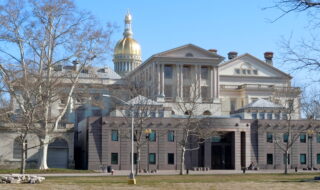May 12, 2025
Vermonters had been facing a 6% spike on top of last year’s 14% hike
While a deal to provide lasting education property tax relief remains elusive, Governor Scott and state lawmakers have agreed on a short-term deal to cap this year’s education property tax increase at 1.1%. The buydown will cost $118 million, paid for by a mix of surplus general and education fund tax dollars.
In his “December 1 Letter,” the Scott Administration forecasted a 5.9% education property tax increase for Fiscal Year 2026. Governor Scott cited the cumulative toll of an average 33% increase over the last three years as the need for decisive action to head off another sizeable education property tax hike.
The governor had proposed using a mix of surplus funds and spending reductions, including rolling back the universal school meals mandate (FY26: $18.5 million) to buy down this year’s education property tax increase. Instead, lawmakers used $77 million from the general fund and $41 million from the education fund.
While concerns were raised about depleting the state of surplus money at a time of economic uncertainty, the buydown bill (H.491) passed with broad bipartisan support, including a 28 to 2 vote in the Vermont Senate.
NFIB VT supported reducing the statewide education property tax hike with surplus funds and continues to urge lawmakers to provide last relief for small businesses, including:
Protect Small Businesses From Property Tax Shifts: More nuanced classification categories can be an opportunity to avoid increasing the burden on residential property owners and small commercial/industrial property. However, burden shifting can be an unintended consequence of reform – not just from residential onto small businesses, but also sometimes from higher valued C/I properties onto lower valued C/I properties.
Consider A Small Business Market Value Exclusion. At least one state with a statewide property tax offers a market value exclusion aimed at helping small businesses. Minnesota exempts the first $150,000 in value of commercial and industrial properties from its statewide general levy. In an NFIB VT survey earlier this year, more than 80% of small business respondents supported this approach to relief for its simplicity. Aside from the amount of the exclusion, variations could include limiting the exclusion to properties under a certain value threshold (e.g., $1 million).
NFIB is a member-driven organization advocating on behalf of small and independent businesses nationwide.
Related Articles














